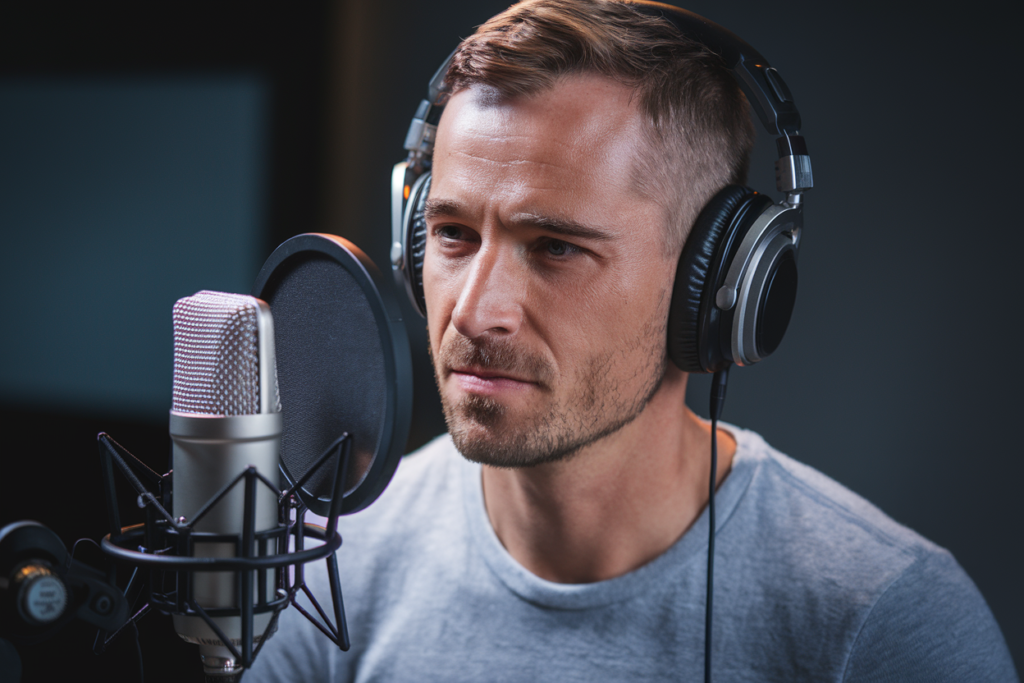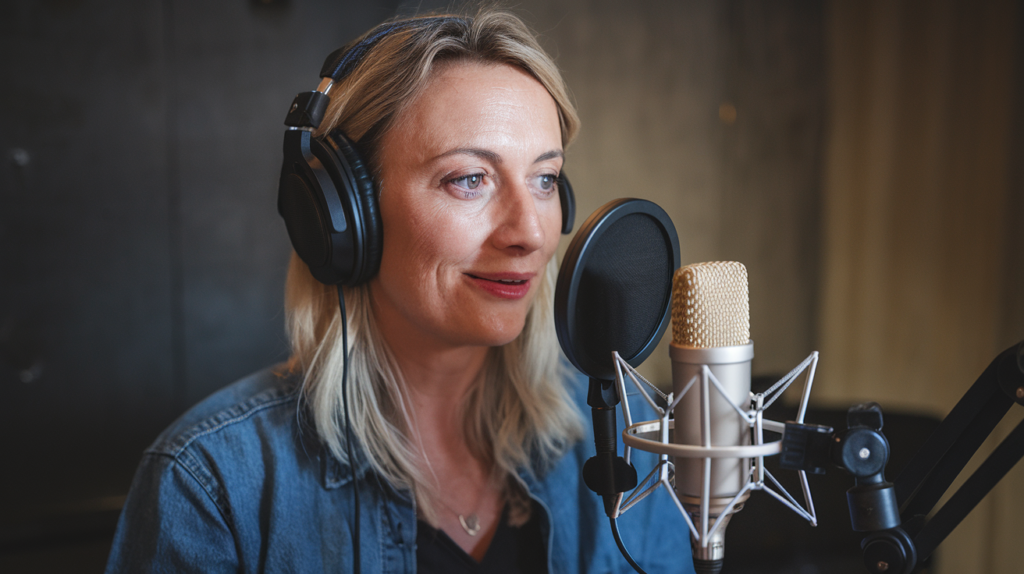Key Takeaways
- Diversity of Accents: The French voiceover industry is characterized by a wide range of regional accents and dialects, making it essential to select voice talent familiar with these nuances for authentic delivery.
- Cultural Relevance: Understanding cultural considerations is crucial; skilled voice actors must adapt their performances to resonate with local customs and audience expectations.
- Technical Challenges: High-quality recording requires appropriate equipment and acoustics. Background noise and echo can significantly affect the clarity of voiceovers, necessitating proper studio conditions.
- Casting Considerations: Finding the right voice actor involves navigating casting difficulties due to diverse regional pronunciations; matching talent with your target demographic enhances relatability.
- Effective Direction: Clear communication of your vision to the voice actor is vital. Misinterpretations can lead to unexpected results, so fostering open dialogue ensures alignment between expectations and delivery.
Ever wondered what it takes to nail a French voiceover recording in France? While the charm of the language is undeniable, the challenges can be daunting. From regional accents to cultural nuances, mastering this art requires more than just fluency.
Overview of French Voiceover Industry
The French voiceover industry thrives on its diversity and richness. Numerous regional accents exist, each carrying unique cultural nuances that influence how messages are delivered. You’ll find that navigating these variations is crucial when selecting the right voice talent for your project.
Voice actors in France bring a broad spectrum of skills to the table. These professionals often specialize in various genres, such as commercials, animations, documentaries, and corporate videos. Understanding their expertise helps you identify the perfect voice artist for your specific needs.
In recent years, technological advancements have transformed the landscape of voiceovers. High-quality recording equipment and software enable artists to produce professional-grade audio from almost anywhere. This flexibility allows you to collaborate with top-tier voice over talent without geographical limitations.
However, challenges still persist in this vibrant industry. Achieving authenticity while accounting for local dialects can complicate recordings. Voice over artists must not only convey emotion but also connect with audiences through culturally relevant expressions.
As you explore options within this sector, consider how important it is to choose a skilled voice actor who understands these subtleties. Their ability to adapt will set your project apart and resonate deeper with target audiences across France or beyond.
Common Challenges Faced
Recording a French voiceover presents unique challenges that can impact the final product. Understanding these obstacles helps you make informed decisions when choosing voice talent.
Language Nuances
Language nuances play a crucial role in delivering an authentic voiceover. French has various dialects and regional accents, each with its own distinct characteristics. For instance, the difference between Parisian French and Southern French can be drastic. Selecting a voice actor who understands these subtleties ensures that your message resonates with the target audience. Mispronunciations or incorrect intonations may lead to misunderstandings or diminish credibility.
Cultural Considerations
Cultural considerations significantly influence how audiences perceive voiceovers. France’s rich cultural tapestry shapes expressions, humor, and references within the language. A skilled voice over artist recognizes these elements and adapts their delivery accordingly. Failing to account for cultural context might alienate listeners or create confusion about your brand’s intent. Engaging a knowledgeable voice actor familiar with local customs enhances relatability and connection with diverse audiences across France.
Technical Hurdles
Navigating technical hurdles in French voiceover recording can present significant challenges. It’s crucial to understand these aspects for achieving high-quality results.
Equipment and Software Limitations
Equipment choices impact the quality of your voiceovers. Not all microphones capture the nuances of the French language effectively, especially when it comes to regional accents. High-end gear is essential for clear sound reproduction, but not every studio has access to top-of-the-line equipment. Additionally, software limitations can hinder the editing process. Some programs may lack features that enhance vocal clarity or eliminate background noise, making it harder for voice actors to deliver polished performances.
Acoustic Issues
Acoustic environments play a pivotal role in voiceover recordings. Background noise and echo can distort a voice actor’s delivery, compromising authenticity. Recording in untreated spaces often leads to unwanted reverberation that detracts from the overall quality of the final product. Ideally, studios should have soundproofing elements like acoustic panels or foam to create an optimal environment for capturing clear audio. If you’re considering a location for recording, prioritize spaces with controlled acoustics to ensure your message resonates well with audiences across France.
Understanding these technical hurdles helps you make informed decisions when selecting voice talent for your projects. By addressing equipment and acoustic considerations upfront, you set the stage for successful French voiceover recordings that connect authentically with listeners.
Creative Obstacles
Creative obstacles often arise in French voiceover recording, impacting the process and outcome. Understanding these challenges can help you navigate the complexities of selecting suitable voice talent for your projects.
Casting Difficulties
Casting difficulties frequently occur due to the vast array of regional accents and dialects within France. Choosing a voice actor who embodies the right tone and style for your project is crucial. Some regions have distinct pronunciations that may not resonate with all audiences, so it’s essential to match the voiceover artist’s background with your target demographic. Additionally, finding a versatile voice over talent experienced in different genres—like commercials or animations—can be tricky. You want someone who not only sounds great but also understands cultural nuances and expressions unique to various French-speaking audiences.
Direction and Interpretation Challenges
Direction and interpretation challenges often emerge during recordings. Communicating your vision clearly to a voice over artist ensures they understand how to deliver the desired emotional impact. Misinterpretations can lead to unsatisfactory results, so providing detailed direction becomes vital. Also, keep in mind that each voice actor brings their own flair to a project; their interpretations might differ from what you envisioned. Encouraging open dialogue allows for adjustments along the way, ensuring alignment between your expectations and their delivery style.
Navigating these creative obstacles requires patience, collaboration, and an appreciation of language intricacies. By addressing casting difficulties and fostering effective communication with your chosen talent, you set the stage for successful French voiceovers that resonate deeply with listeners across diverse backgrounds.
Conclusion
Navigating the challenges of French voiceover recording in France requires a keen understanding of both linguistic and cultural intricacies. You’ll need to consider regional accents and how they influence audience perception. The right voice actor can bridge these gaps by bringing authenticity and relatability to your project.
Technical aspects shouldn’t be overlooked either. Quality equipment and soundproof environments are essential for capturing the nuances that make French voiceovers compelling. By addressing these diverse challenges with informed strategies, you can ensure your recordings not only meet but exceed expectations, resonating deeply with listeners across France. Prioritize collaboration and clarity throughout the process to achieve impactful results that truly connect with your target audience.
Frequently Asked Questions
What are the main challenges in French voiceover recording?
French voiceover recording poses challenges like regional accents, cultural nuances, and language dialects. Understanding these elements is crucial for effective communication and audience connection. Additionally, producers must navigate technical issues related to equipment and sound quality to achieve authentic recordings.
Why is selecting the right voice talent important?
Choosing the right voice talent ensures that the delivery matches the project’s tone and target demographic. A skilled voice actor can adapt to regional accents and cultural references, enhancing relatability with diverse audiences across France.
How do regional accents affect French voiceovers?
Regional accents in France, such as Parisian versus Southern French, significantly influence how a message is delivered and understood. Voice actors must be aware of these differences to ensure authenticity and clarity in their performances.
What role does technology play in French voiceover recordings?
Technology enhances French voiceover quality by allowing high-quality recordings from various locations. However, it also presents challenges; not all microphones capture linguistic nuances effectively, making choice of equipment essential for clear sound reproduction.
How can creative obstacles impact the recording process?
Creative obstacles like casting difficulties or miscommunication between producers and voice actors can hinder project outcomes. Clear dialogue about vision and expectations helps align delivery style with desired emotional impact for successful results.







